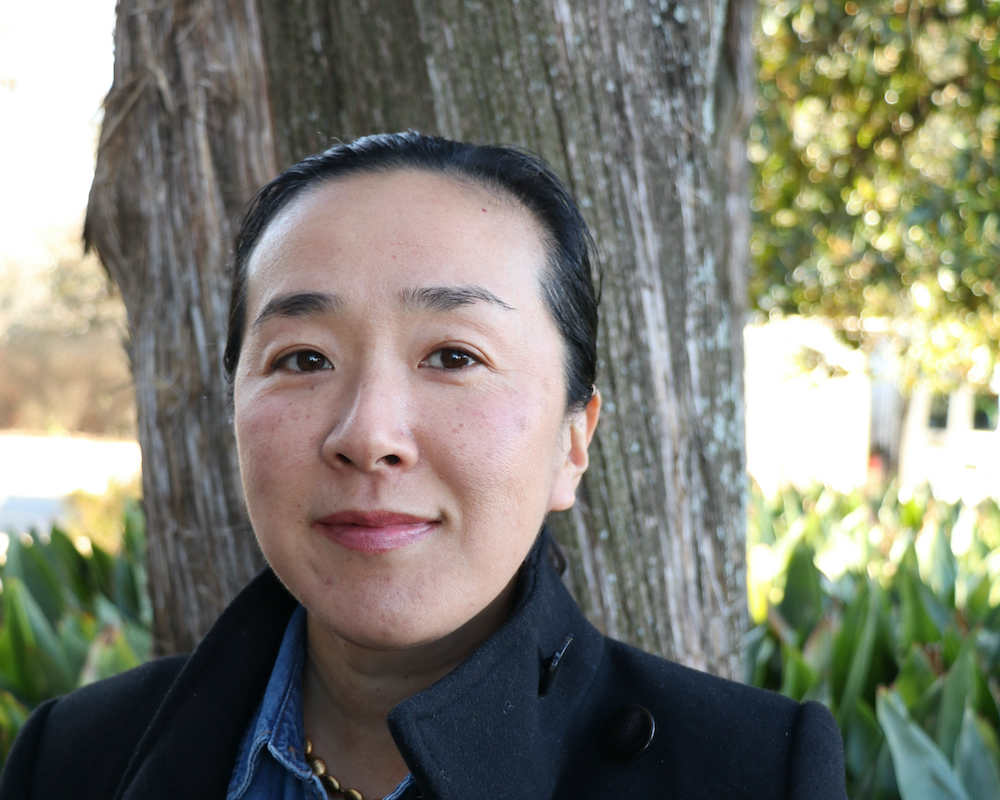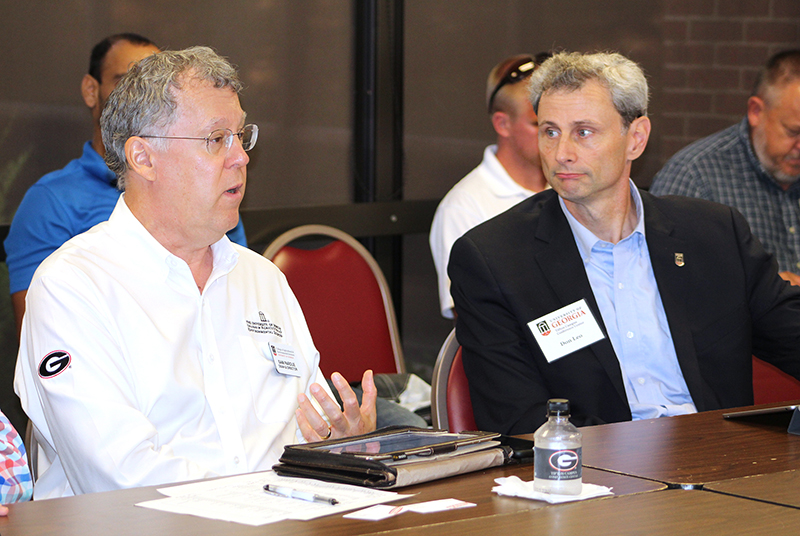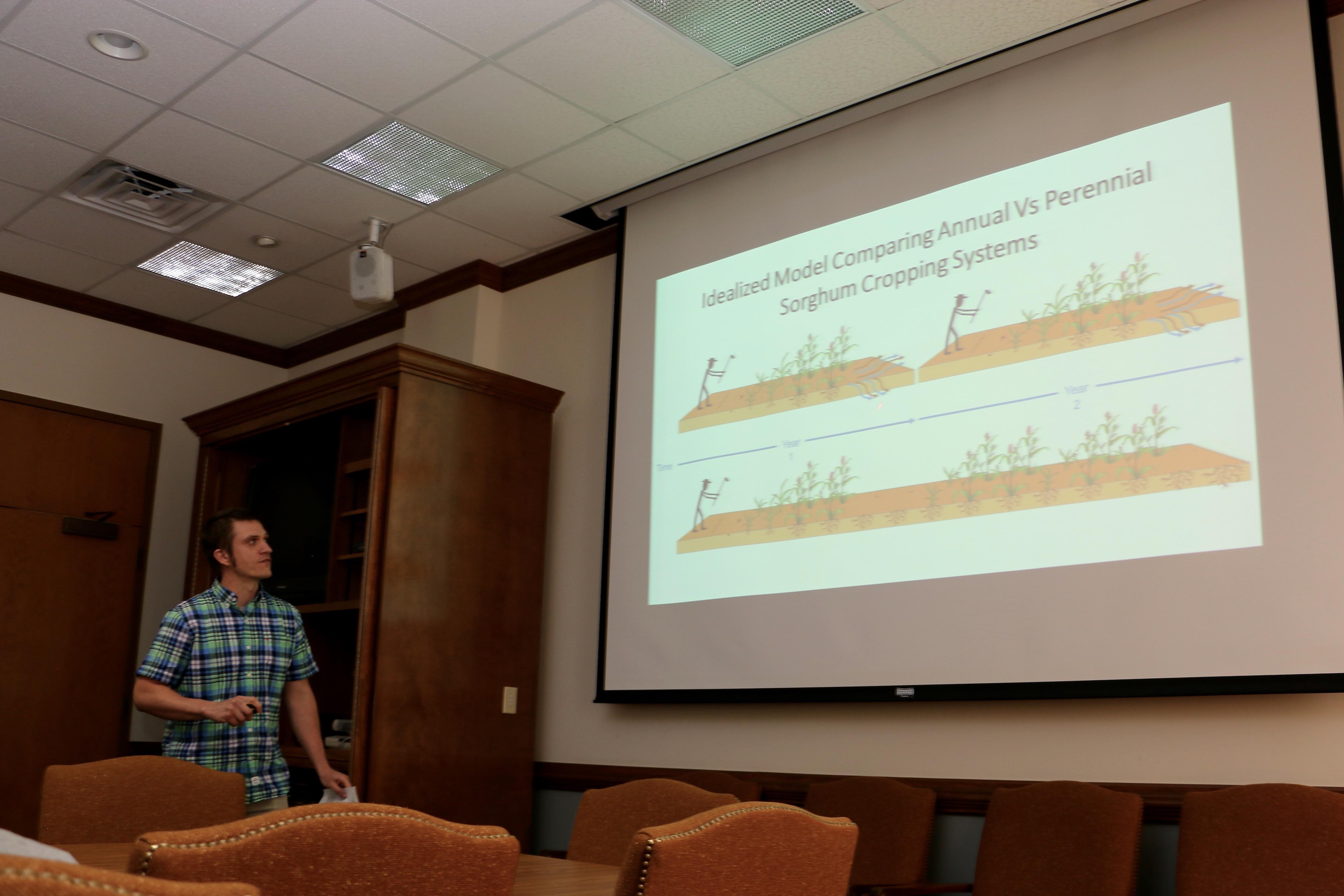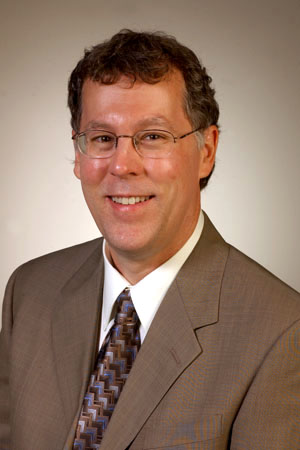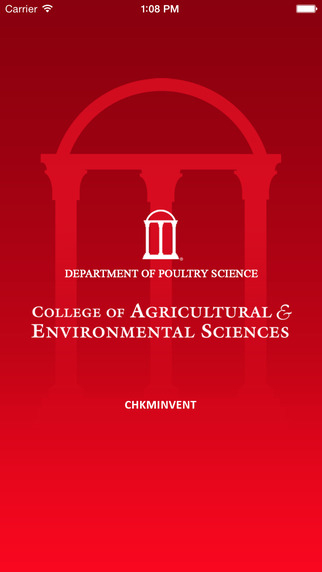Agriculture is Georgia’s largest economic sector, but 80 percent of the food purchased by Georgians comes from other states, according to a University of Georgia expert.
Harald Scherm, associate dean for research at the UGA College of Agricultural and Environmental Sciences, shared that statistic when he welcomed attendees to the Georgia Sustainable Agriculture Consortium’s kick-off event, “Food Hubs for the Future: Growing Georgia’s Mid-Size Farms.”
Farmers, policymakers, business owners and others interested in food hubs turned out for the event Oct. 27 at UGA. The event was also broadcast via webinar.
The recently created Georgia Sustainable Agriculture Consortium would like to see two food hubs developed in Georgia within the next 5 years.
Historically, Georgia agriculture has been focused on large-scale production. Products are sold primarily through wholesale markets across the nation.
Food hubs, a new concept, allow smaller-scale producers to directly sell produce and meats to consumers. The event focused on how food hubs can offer a channel for local farmers to reach local businesses.
“This is something that can affect all of our farmers,” said Julia Gaskin, coordinator of UGA Cooperative Extension programming in sustainable agriculture.
Frank Riley, a farmer who grows corn and pumpkins, would like to develop a farmers market in Hiawassee, Ga. He was one of many small-scale farmers in attendance. “Food hubs are good for the community. They are good for everyone,” Riley said.
Food hubs are locally managed, have the potential to generate jobs, improve rural economies and increase the capability of mid-scale farms. However, the creation and implementation of food hubs can be difficult.
The success of food hubs depends on the joint effort of Georgia’s agricultural organizations, Gaskin said. A diverse group of agricultural leaders participated in a panel discussion at the event. The panel included Georgia Commissioner of Agriculture Gary Black and representatives from the UGA CAES, Fort Valley State University, Georgia Farm Bureau and Georgia Organics.
“It’s not a trend; it’s not a niche,” said Jim Barham, an agricultural economist with the U.S. Department of Agriculture and one of the event’s speakers.
Barham travels the northern and mid-western U.S. representing USDA. Georgia is the first state in the South to request the USDA at such an event, he said. “What (Georgia’s) doing is exactly what we want to see,” he said.
Gaskin hopes to locate interested parties, form working groups and host an in-depth event, all to raise awareness for food hubs.
The consortium includes CAES, Fort Valley State University College of Agriculture, Family Sciences and Technology, and the Georgia Department of Agriculture. For more information about it, contact Gaskin at jgaskin@engr.uga.edu.





